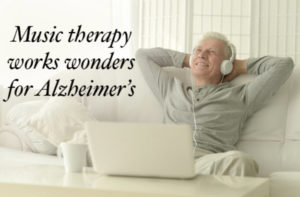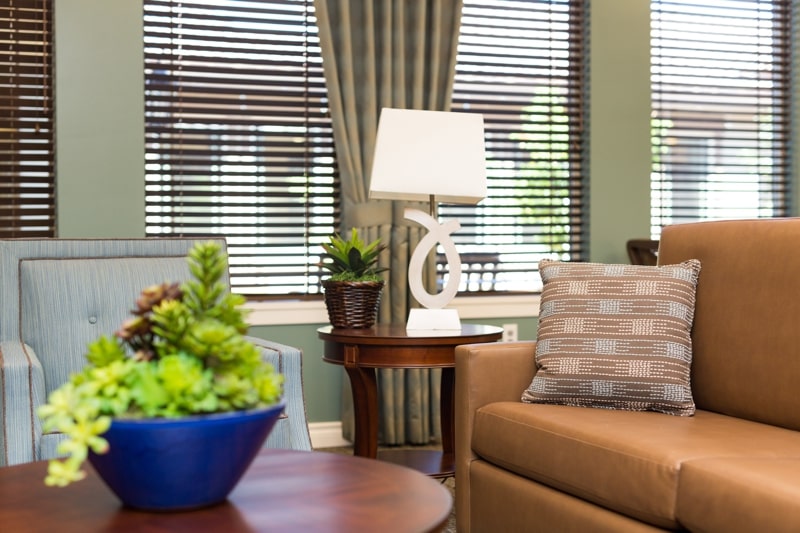Music Therapy for Alzheimer’s Disease?
What type of memory care should we consider for our loved ones who are in an assisted living, Alzheimer’s care facility? Should it only be medically oriented?
We tend to think of complicated diseases such as Alzheimer’s disease as a medical problem that affects the physical body alone. When we think this way, we also believe that the only solution in memory care would be a protocol that affects only the body in a medical way; one that includes prescription drugs, surgery, or injections of many types.
Researchers on Alzheimer’s disease shows there may be other ways to affect patients who suffer from the disease. Surprisingly, this type of research dates back at least a decade; yet we don’t seem to hear about it much. However, it’s the type of research that makes us think, why can’t these new methods be used in Alzheimer’s care assisted living homes?
Music Therapy for Alzheimer’s’ Could Somehow Help, Thought Japanese Researchers
One example of how to approach treatment of Alzheimer’s disease outside of the box is with music therapy.
In one 2012 study, six female patients with Alzheimer’s disease in a memory care, assisted living home for Alzheimer’s care listened to 12 songs that the therapist sang to the patients for about an hour during a music therapy session over a one month time period. The therapist sang the songs without a microphone but accompanied by a keyboard pumped through a speaker.
When you think about it, who wouldn’t want someone to sing to them? How special is that? It may remind us all of tender moments where a mom or dad was singing to us as a child to calm us.
As the therapist sang, each patient’s behavior in the assisted care home was evaluated the day before the session, the day of the session and the day after the session. The scientists measured hormone levels in the saliva on the day of the session before and after the music therapy. The therapist also greeted the patients before the sessions.
None of the patients were on hormone replacement therapy or any drugs that affected steroid hormone production in the body.
Another condition tested in the study was one where the patients listened to the music but were not sung to.
How Well Did the Patients Do After the Music Therapy?
The music therapy for Alzheimer’s patients increased the patients’ testosterone levels significantly. It also increased their estrogen levels. (Note: It’s okay for women’s testosterone levels to increase to normal especially at this age!) The greatest effects were seen in the patients that had the most interaction – the therapist greeting them, being sung to, and the ability to listen to the music later. Their hormone levels increased the most.
Why is this finding so important? Estrogen and testosterone has been known to suppress the degeneration of the nervous system cells called neurofibrils. It’s why young people rarely get Alzheimer’s disease – their hormones protect the brain from the disease. Elderly patients have a decrease of both these hormones as they age.
The study showed that music therapy may contribute to the slowing of the progression of Alzheimer disease or even delay its onset. Music therapy restored normal hormone levels and suppressed nerve cell damage while protecting nerve cells, thus stopping the progression of Alzheimer’s disease.
Music therapy could easily be incorporated into memory care programs in assisted living homes for Alzheimer’s care. The memory care homes wouldn’t need to hire a specialist; literally anyone could be trained for this type of position.
Here’s the Relevance of the Study
In general, hormone replacement therapy is expected to be highly effective in the prevention and treatment for Alzheimer’s disease, state the researchers. However, hormone replacement therapy is not something that all Alzheimer’s patients can receive because it can increase the chances for heart disease, strokes and breast cancer. There have actually been studies on this occurring.
Elderly male patients on testosterone replacement risk the development of prostate cancer, acne, hair loss, and high cholesterol levels. Thus, there’s a real need for a more natural approach to hormone replacement therapy in Alzheimer’s patients. Music therapy is perfect for this!
There were no side effects to the music therapy in the patients in the assisted living home, and in fact, their behavior even improved for an entire day after each session of music therapy.
The researchers concluded, “Music therapy (for Alzheimer’s disease) therefore has a potential to be an alternative to hormone replacement therapy for the healthy elderly population.”
Bring on the music in the memory care homes!
Do you have a loved one with Alzheimer’s disease? Are you working with them at home or in a memory care / Alzheimer’s care facility? Either way, this article can help. Give this information some serious thought. How can you bring music therapy to light up your loved one’s world? It may be easier than we all think!
Source:
Fukui, H., Arai, A. and Toyoshima, K. Efficacy of music therapy in treatment for the patients with Alzheimer’s disease. Int J Alzheimers Dis 2012;2012:531646.
Tags: alzheimers care, assisted living, memory care, Music Therapy for Alzheimer's Care













